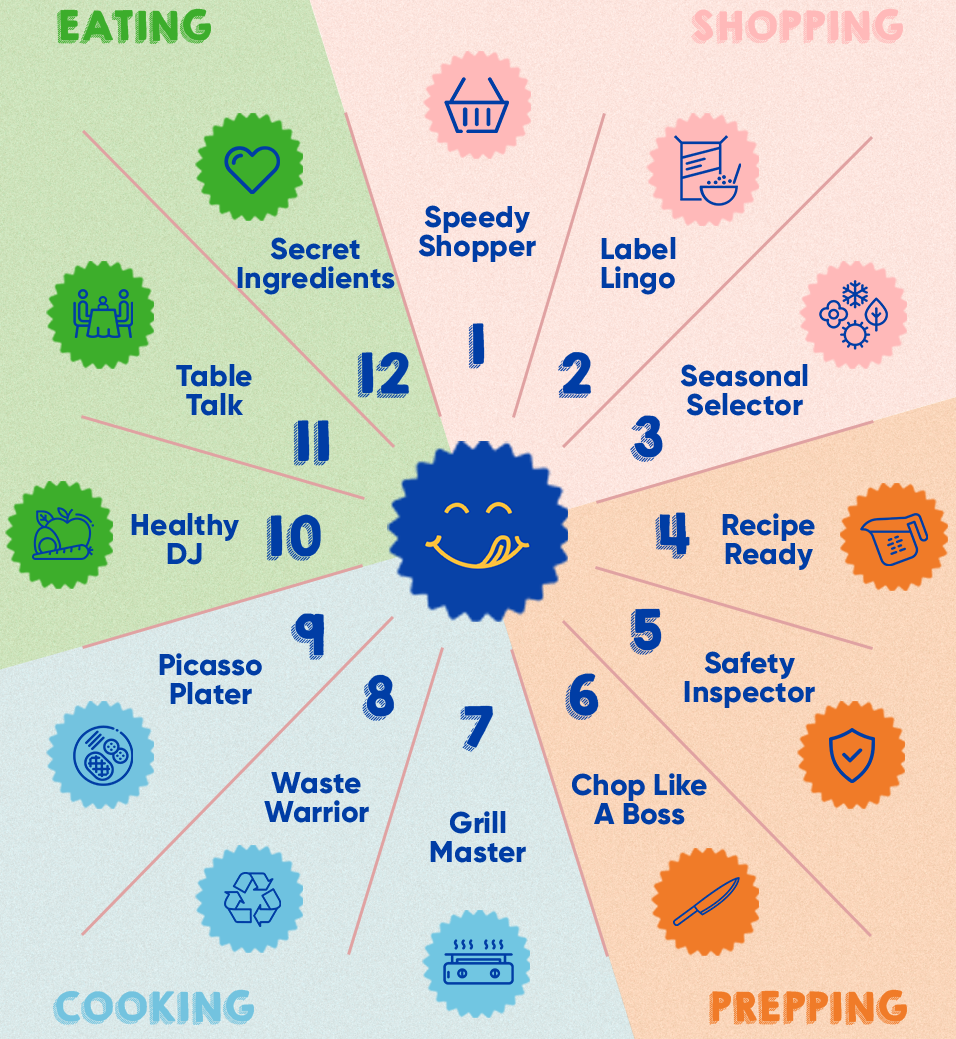If mealtimes are a pain point in your home, you’re not alone. One of the most common challenges families face is trying to get children to enjoy a variety of healthy food.
According to a 2018 YouGovGalaxy study, Australian parents list ‘eating more vegetables’ as the healthy food behaviour they would most like to see their children to adopt (52%). And for good reason – 95% of Australian children don’t eat the recommended five serves of veggies a day despite years of education about their health benefits. But perhaps before we go wagging the finger at the little people in our lives, we need to take a long hard look at our own diets – 90% of Australian adults don’t eat enough veggies either.
What are the barriers to healthy eating?
Most of us have had the ‘eat more vegetables’ message drummed into us since primary school. And if access and affordability to whole food heroes like vegetables, fruits, legumes and wholegrains aren’t issues for the majority of Australians, why aren’t we eating better?
One of the most significant barriers identified by dietitians is a relatively obvious one – dietary preference. For example, do we like how these foods taste? For many kids (and parents too) the answer is a big fat no. In the hyper-speed of modern life, convenience is also a barrier. Busy families need food to be fast – fast to prepare, fast to eat, as little mess as possible please. So how can healthier food options, particularly those that need some preparation before they can be eaten or enjoyed, possibly compete with discretionary foods (aka junk food) that tick the box on taste (hello salt, added sugar and saturated fat), speed and ease? What skills do Australians need to overcome these barriers to healthy eating that threaten our potential to live long and healthy lives?
Making whole foods easier and more enjoyable
That’s the motivation behind 12 before 12, a new Sanitarium initiative that aims to bring families together at mealtimes and teach kids how to make healthy eating easier and more enjoyable.
In developing the initiative, Sanitarium has partnered with dietitian Themis Chryssidis and Masterchef™ fan favourite Callum Hann from Adelaide’s acclaimed Sprout Cooking School to identify 12 food skills to help children shop, prep, cook and eat their way to a healthier life. It aims to empower primary-school aged children around food selection and meal preparation, challenging them to learn the 12 skills before they turn 12 years old.

12 before 12 also reinforces the importance of family meal times as an opportunity for parents to model healthier eating behaviours and provide children with a much-needed opportunity to reconnect after a busy day at school and play. Evidence from the Little People Big Lives report demonstrates this is critical for children’s emotional wellbeing, arguably even more so during the current period of stress and uncertainty.
In helping identify the 12 skills, Themis Chryssidis from Sprout said they were guided by a mission to simplify healthy eating advice.
“Somewhere along the way, the healthy eating message has got so complex. We’ve become overly focused on looking at food through the lens of nutrients or kilojoules – the micro detail of what we’re eating – that we’ve lost sight of the bigger picture behaviours that make healthy eating intuitive. Food has become over-thought, and it’s not doing us any good.
“12 before 12’s simpler message is: Eat mostly whole plant-based foods, drink mostly water, cook more at home – and for kids, find ways to sprinkle in some fun”, he said.
Making time for kids in the kitchen
Commenting on the initiative, Shane Landon, Accredited Practising Dietitian and Nutrition Insights Manager, Sanitarium Health Food Company said: “We created 12 before 12 because healthy food habits established in childhood play an important role in our health over our lifetime. One of the key ways to a healthier diet is having the practical skills to make it happen.”
“Food preparation and cooking skills are key ingredients in nutrition education, but we can’t rely on schools to do the job alone, particularly when most meal preparation happens in the home. Teaching children essential food skills needs to sit alongside physical activity as a priority for every Australian parent – and it can be lots of fun too!” said the father of two.
